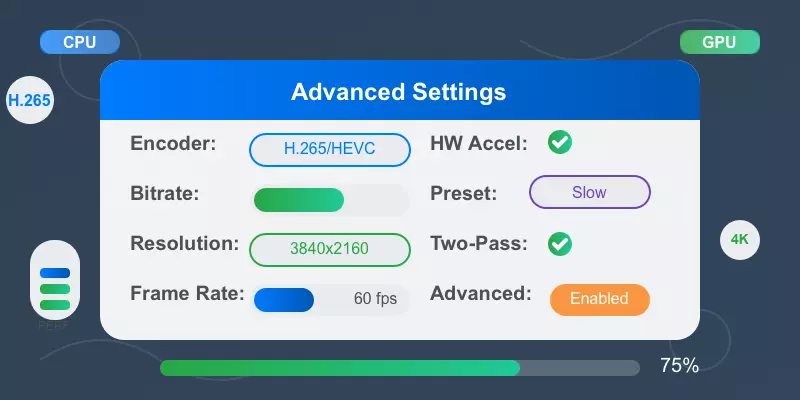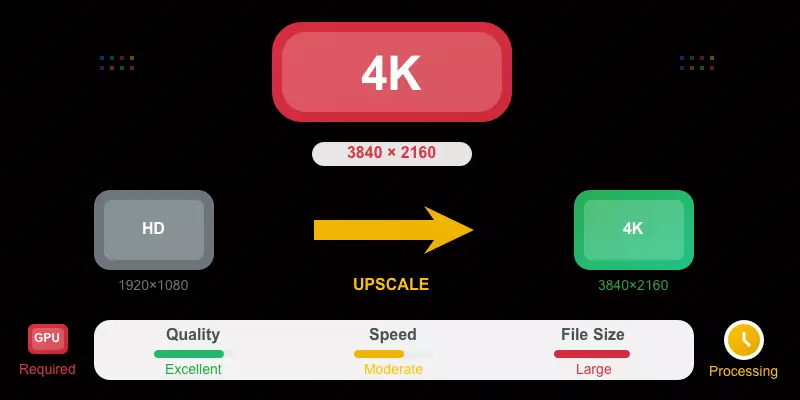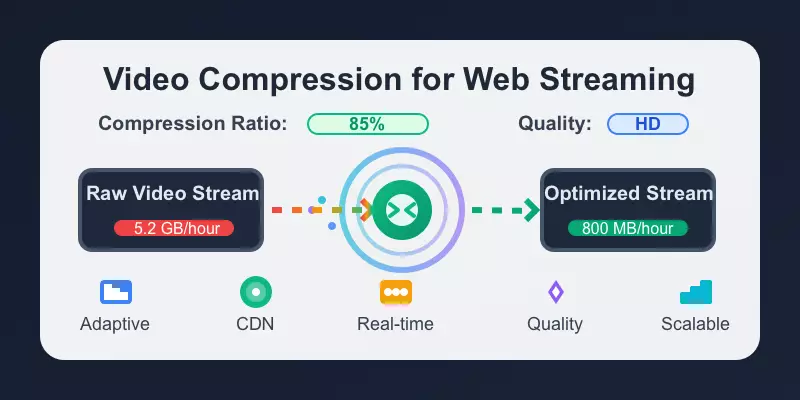Hardware Acceleration
Articles, guides, and resources about hardware acceleration for video processing, including GPU encoding, NVENC, QuickSync, and performance optimization techniques for faster video conversion.
Articles Tagged with "Hardware Acceleration"
Advanced Video Conversion Techniques
Master professional video conversion with hardware acceleration. Learn about GPU encoding, NVENC, QuickSync, and performance optimization for faster processing.
Read More4K Video Conversion: Best Practices and Settings
Master 4K video conversion with hardware acceleration support. Learn about GPU requirements, hardware encoding settings, and performance optimization for 4K processing.
Read MoreVideo Compression for Web Streaming
Optimize video compression for streaming with hardware acceleration. Learn about GPU-accelerated encoding, real-time compression, and performance optimization techniques.
Read MoreLearn More About Hardware Acceleration
About Hardware Acceleration for Video Processing
Hardware acceleration revolutionizes video processing by leveraging specialized hardware components like GPUs, dedicated video encoders, and AI accelerators to dramatically improve performance and efficiency. Instead of relying solely on CPU processing, hardware acceleration distributes computational workloads across purpose-built hardware, resulting in faster encoding times, reduced power consumption, and the ability to handle multiple high-resolution video streams simultaneously. This technology has become essential for real-time streaming, professional video production, and large-scale content processing workflows.
Performance Benefits
- Speed improvement: 5-20x faster encoding than CPU-only
- Power efficiency: Lower energy consumption per frame
- Parallel processing: Multiple streams simultaneously
- Real-time capability: Live encoding and streaming
- System responsiveness: Frees CPU for other tasks
Hardware Applications
- Content creation: Video editing and rendering workflows
- Live streaming: Real-time encoding for broadcasts
- Cloud services: Scalable video processing infrastructure
- Gaming: Game capture and streaming optimization
- Enterprise: Video conferencing and collaboration
Hardware Acceleration Technologies
NVIDIA NVENC
Dedicated encoder: Hardware H.264/H.265 encoding
Performance: Up to 8K encoding capability
Quality: Optimized for streaming and recording
Intel QuickSync
Integrated solution: Built into Intel CPUs/GPUs
Efficiency: Low power consumption
Compatibility: Wide codec support
AMD VCE/VCN
Video Core Engine: AMD's encoding solution
Modern codecs: AV1 and HEVC support
Integration: Radeon GPU acceleration
Implementation & Optimization
Future of Hardware Acceleration
The future of hardware acceleration includes AI-powered encoding optimization, specialized neural processing units for video enhancement, and cloud-based GPU acceleration services. Machine learning algorithms are increasingly being integrated into hardware encoders to provide content-aware optimization, while new codec standards like AV1 are driving hardware support. Edge computing and 5G networks are also creating demand for efficient, low-latency hardware acceleration solutions.


